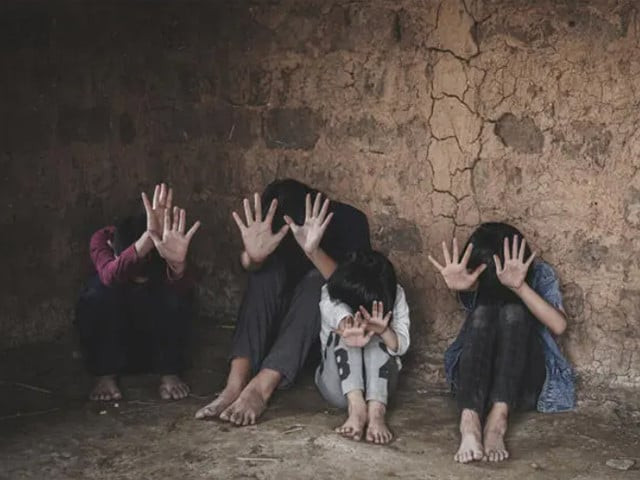Human trafficking in Pakistan is a silent crisis, festering beneath the surface of society and ensnaring countless women and children in a web of exploitation and despair. This egregious crime, hidden in plain sight, exposes the dark underbelly of a nation grappling with corruption, insufficient law enforcement, and systemic governmental failures. The pervasive abuse of the most vulnerable, driven by ruthless criminal networks, perpetuates a cycle of suffering and societal indifference that demands urgent and decisive action. This human rights catastrophe is not merely a blemish on Pakistan's moral fabric—it is a profound crisis that calls for immediate, comprehensive intervention to save the innocent and restore justice.
The magnitude of human trafficking in Pakistan is staggering, with the Global Slavery Index estimating over three million people living in modern slavery, encompassing bonded labour, forced marriage, and sexual exploitation, often targeting women and children. The trafficking of children, for purposes such as domestic servitude, begging, and hazardous labour in industries such as brick kilns and carpet weaving, starkly illustrates the systemic failure to protect society's most vulnerable.
Bonded labour in the agricultural sector exemplifies this modern-day slavery, trapping entire families in cycles of debt and servitude for generations, perpetuated by landowners exploiting legal loopholes and corruption. Despite the Bonded Labour System (Abolition) Act of 1992, enforcement is inadequate, with victims often invisible to the legal system. The entrenched feudal structures and local authorities' complicity or indifference further complicate efforts to dismantle these exploitative networks.
Human trafficking for sexual exploitation is another pervasive issue in Pakistan, where women and girls from impoverished backgrounds are lured with promises of employment and better lives, only to find themselves trapped in brothels and subjected to horrific abuse. The covert nature of this trade, combined with societal stigmas attached to victims, ensures that these crimes remain underreported and inadequately addressed. Non-governmental organisations (NGOs) like the Edhi Foundation have made commendable efforts to rescue and rehabilitate victims, yet their resources are limited, and the scale of the problem demands a much larger, coordinated response.
Moreover, the rise of the internet and social media has provided traffickers with new avenues to exploit vulnerable individuals, making online recruitment, grooming, and exploitation alarmingly common. This necessitates a robust cyber-crime framework to combat these modern threats. Unfortunately, Pakistan's cyber laws are still in their nascent stages, and law enforcement agencies often lack the expertise and resources to effectively tackle online trafficking.
Corruption within Pakistan's law enforcement and judicial systems exacerbates human trafficking, with bribery and collusion with traffickers undermining accountability and justice for victims. Cases are often delayed or dismissed due to insufficient evidence or the influence of powerful individuals, perpetuating a culture of impunity. A comprehensive overhaul of the legal and judicial systems, focusing on transparency, accountability, and victim-centered justice, is essential to address this issue. Education and awareness campaigns are crucial, as many victims come from marginalised communities with limited access to education and economic opportunities. Investing in education and vocational training can empower these communities and reduce vulnerability to trafficking. Public awareness campaigns can also change societal attitudes towards victims, encouraging reporting and fostering a culture of vigilance against trafficking.
International cooperation is crucial in combating human trafficking, a transnational crime that requires a coordinated global effort. Pakistan must collaborate with neighbouring countries and international organisations to dismantle trafficking networks, share intelligence, and support cross-border rescue operations. Adherence to international conventions, such as the United Nations Protocol to Prevent, Suppress and Punish Trafficking in Persons, is essential for aligning domestic laws with global standards. Addressing this multifaceted and deeply entrenched issue demands urgent and sustained action from the Pakistani government, prioritising the protection of vulnerable populations, strengthening legal and law enforcement frameworks, and fostering a culture of zero tolerance towards trafficking. Only through a concerted and holistic approach can Pakistan eradicate this blight and ensure a safer, more just society for all its citizens.



COMMENTS
Comments are moderated and generally will be posted if they are on-topic and not abusive.
For more information, please see our Comments FAQ